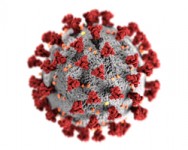In-Person Meeting Update for 2020 Growing Season
Event Details
Date
July 1 - July 31, 2020
Host
Cornell Vegetable Program
The Cornell Vegetable Program is receiving many requests for a summer meeting schedule. Traditionally these meetings are held on a cooperating farm and feature peer learning, crop demonstrations and insights from Cornell specialists, often with pesticide license re-certification credits. They are great opportunities to hear research updates and learn from other farmers. They go by many names: Twilight, Field Walk, Coffee Pots, Muck Donut…We look forward to them as much as you do.
Due to COVID-19 pandemic guidance from NYS Department of Ag & Markets, NYS Department of Health, and Cornell University, we do not have dates for meetings right now. But keep reading, as we are working towards hosting meetings by the end of the growing season.
Most of the state, and all of the CVP region, is in Phase 4, the final phase of re-opening. However, there are still directives that limit certain activities, even in Phase 4 and beyond. Our field meetings fall under the NYSDAM "Interim Guidance for Local Agricultural Demonstrations and Exhibitions".
A few important points here are:
- Participants must come from the region in which the demonstration or exhibition will take place or a directly adjoining county located in an open region.
- Organizers must comply with all NY Forward, Phase One: Agriculture Guidance, including "Non-food Related Agriculture Summary Guidelines"
- Organizers must develop and implement a business safety plan
- Demonstrations and exhibitions must be spaced out so that there are groups of no more than 10 people at any one time, including those conducting the demonstration or exhibition.
- Anytime individuals are in close proximity to each other, face masks must be worn by all individuals in accordance with NYS guidance.
Beyond State requirements for these meetings, we must also comply with Cornell University re-opening procedures which continue to evolve. Cornell Cooperative Extension is a complex system with county and state partners that also influence our meetings. Right now a group is working to develop a uniform guidance for field meetings that meet the approval of our College leadership. We will also need to work with DEC to obtain recertification credits for meetings we hope to set. Most importantly we need to work with farmers willing to host the meetings and respect our guidelines to prevent further spread of COVID-19.
Thanks for your patience during this uncertainty. We expect the situation to move, hopefully along with our health metrics, in the right direction. Watch this space for updates.

Upcoming Events
African Eggplant Participatory Breeding Kick-Off
March 5, 2026
Join us to learn about the Cornell African Eggplant Research Project and learn how you can participate! African eggplant, also known as Bitterball, Garden Egg, Kittley and other names, is an important crop for many members of our community with heritage from regions such as sub-Saharan Africa, Southeast Asia, and Brazil. Since 2024, the Cornell African Eggplant Research Project has been collaborating with growers and community partners across New York to develop high-quality varieties adapted to the Northeast U.S. In this meeting, we will share information about growing and preparing African eggplant, highlight our research to date, and invite partners to collaborate with us in our 2026 participatory breeding and variety selection efforts.
COST: FREE! You must pre-register to receive the Zoom link.
Managing the Invasive Swede Midge Webinar
March 6, 2026
Swede midge is an invasive fly that causes serious economic losses to brassica crops. Due to its small size and hidden feeding habits, swede midge is often called an "invisible pest" and damage may be misdiagnosed. In this webinar, we will review the swede midge life cycle and crop damage symptoms, current management recommendations, new research findings, and highlights from on-farm case studies with a focus on organic management.
1.75 DEC pesticide recertification credits in categories 1a, 10, and 23.
Good Agricultural Practices (GAPs) Food Safety Training
March 10, 2026
Newark, NY
Learn about food safety on the farm! This event hosted by the Cornell Vegetable Program, Cornell Lake Ontario Fruit Team, CCE Wayne County, and the NYS Department of Agriculture, will cover good agricultural practices (GAPs) to help reduce the risk of microbial contamination on the farm, keeping food and consumers safe.


































